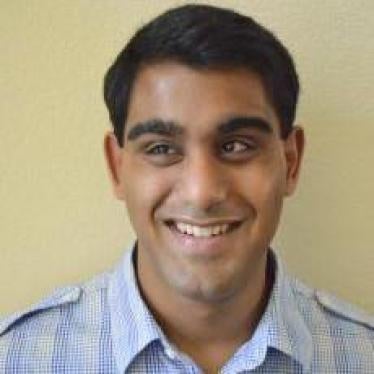Disability has always been my least favorite word in the English language. It’s the word that catches in my throat and forces my pen to pause midthought.
I can easily apply this term of difference, of alienation to others. As a human-rights advocate, I routinely argue that someone has a right to protection on the basis of disability. Phrases like “legal capacity” and “reasonable accommodation” are a standard part of my iPhone’s autocorrect. Applying the word to myself is more complicated.
The word games started early, in grade school. As a person who is legally blind, I quickly grew accustomed to questions about my disability. “How far can you see?” “Why do you look so closely at the paper?” Disability was attached as a label of who I was, like it or not. I felt as though it defined me.
As I grew, disability continued to exert its influence. In high school I found out I could not drive a car. One after another, friends around me received this mark of adulthood and I felt left behind.
Yet in the past few months, something strange has happened to my least favorite word. My understanding, and its meaning for me, have begun to shift. Disability is no longer something that brings me shame. Instead, I feel the early stirrings of pride.
I ascribe this newfound revelation to a document: the UN Convention on the Rights of Persons with Disabilities, known as the CRPD, which describes disabilities as “long-term physical, mental, intellectual or sensory impairments which in interaction with various barriers may hinder their full and effective participation in society on an equal basis with others.”
In interaction with various barriers: this seemingly innocuous language has made all the difference in the radical shift in my thinking. Under this treaty, disability is a combination of impairment along with the barriers that disable. My frustration about not driving was caused both by a visual impairment, but also and equally important, by the lack of easy access to alternative transportation options in Southern California. Since I moved to New York, with its extensive subway network, the lack of a car and driver’s license has no effect on my daily routine and is no longer a disabling barrier.
I used to perceive disability as something that defined what I could not do, a single word that captured all my difference instead of noting the promise of what I could achieve and how my experience was not so different from my classmates and friends.
Looking back, the commonalties of our shared moments — doing homework together, playing basketball in the gym, supporting and enabling each other — are what I remember. Sure, I did things a little differently, preferring to shoot my basketball closer to the rim rather than further back, or listening to a book instead of reading it. But we all have preferences and individual ways of accomplishing the same goal. That is what makes us each unique.
Earlier this month, the United Nations hosted its annual conference for all countries that have ratified the CRPD, 164 countries to date. Advocates with disabilities, diplomats and nongovernment groups from around the world came to New York to affirm how far we have come and to reiterate how far we still have to go to realize full equality. After all, as Human Rights Watch has documented, people with disabilities continue to be put in institutions and lack access to education and other basic rights.
As people gestured with their hands, talked, walked and rolled through the UN halls, my new understanding of disability crystallized. Having a disability, like having blond hair or being tall, is just part of our humanity. It is something we can acquire at any time.
One of the most profound challenges surrounding disability is the sense of stigma that it brings. Many of the Human Rights Watch reports I read in the past year carry a constantrefrain: people with disabilities are seen and treated as less than human. With so many negative attitudes, it becomes easy to internalize a sense of worthlessness, to feel as though your very sense of self amounts to just your disability.
This needs to change, and it needs to change now. People with disabilities must affirm our self-worth and demand that others do the same. Disability is beautiful. Moving forward, I plan to celebrate that difference.
I have a disability, and I am proud.









